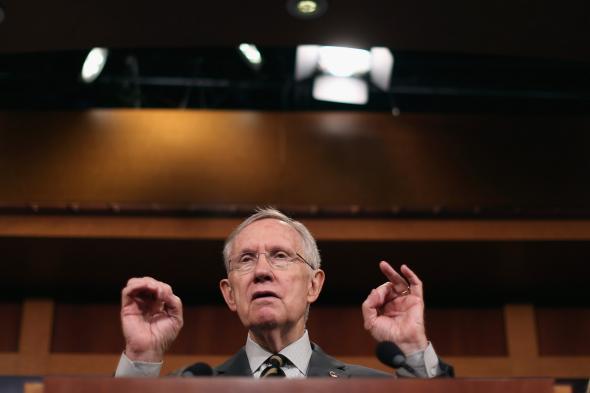Harry Reid’s Trolling of the Kochs Scores Its Biggest Hit Yet

Photo by Chip Somodevilla/Getty Images
It's a few days old, so I'm late to it, but the Louisiana Republican Party has decided to respond to Harry Reid's incessant trolling of Charles and David Koch with some trolling of its own. The state party has filed an ethics complaint to the Senate—the sort of tactic that pops up more and more frequently in election years, because there's no punishment for filing a complaint that falters—asking Reid to be investigated for politicking. On work time, he and presumably his staffers are attacking the Kochs for their campaign spending. Here's the key accusation of the letter.
As American Committment's Phil Kerpen (a Koch ally, and a smart one) pointed out, Reid is technically running for re-election in 2016. But he's thought through his trolling. Americans for Prosperity, yes, buys lots of TV ads that tell voters to call Democratic members of Congress and shame them for Obamacare, or to call Republicans and thank them for opposing it. But they don't call these "campaign ads." AFP, it maintains, is an educational organization. Ask an AFP organizer to weigh in on an election, as I sometimes do, and he or she will tell you that his or her nonpartisan organization cannot weigh in on campaigns. Nor would it want to.
This explanation challenges logic and reason, and AFP isn't alone in using it—Organizing for Action, which grew out of the Obama presidential campaigns, also claims to be nonpartisan. Reid's irritating campaign has succeeded in baiting an actual Republican party to define AFP's ads as "political." Accidentally, perhaps, the Lewis Carroll nature of these definitions is exposed by legalese and ethics complaints.
